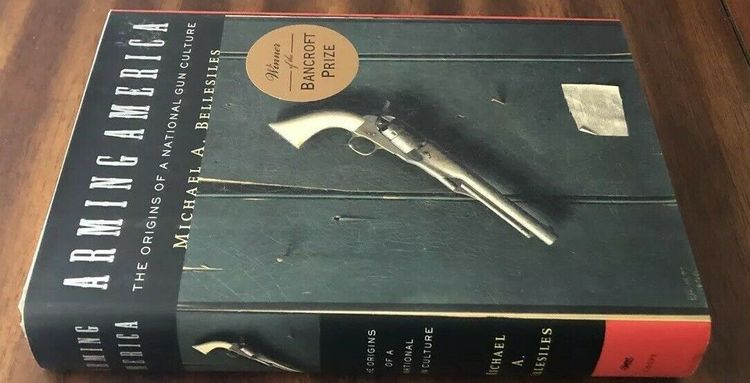
The Collapse of Liberal Lies: That Bellesiles Gun Book
By Sam Francis
02/07/2002
One major reason the Soviet Union finally collapsed around its own socks is that the ideological dogmas by which it was governed were eventually exposed as pure and simple lies. If the liberalism that dominates American politics and culture ever collapses, it will be for much the same reason. Just this year, one of the most recent contributions to liberal scholarship that tried to use historical data to bolster the case for gun control has all but been exposed as an outright fraud.
The book in question is Arming America: The Origins of a Gun Culture, by Emory University historian Michael A. Bellesiles, published in 2000 to ovations from just about every liberal loudmouth in the country. The book’s argument, quite simply, is that private gun ownership in early American history was fairly rare.
If true, that would mean that guns were not an integral part of our national experience, that private arms were not necessary to a free republic and that the habit of owning guns was really, as Mr. Bellesiles argues, due to the propaganda efforts of gun manufacturers and their lackeys later in our history.
Now the book has been all but demolished. Not only has its thesis been shown to have little foundation but Mr. Bellesiles may very well have simply fabricated his evidence. One major controversy about the book has to do with the probate records he says he studied that reveal very few guns in private ownership.
Mr. Bellesiles says he examined some 10,000 probate inventories — including those in San Francisco records between 1849 and 1859 — and found that guns were uncommon in American homes. There’s just one little problem: The San Francisco records don’t even exist; they were destroyed during the city’s 1906 earthquake.
That’s not the only problem. One scholar, Clayton Cramer, says he’s found "hundreds and hundreds" of errors in the book and the only explanation is "massive misrepresentation." Another, James Lindgren, says the book "counted guns in about 100 wills where people died without wills." And so it goes, with scholars of all persuasions uncovering flaws, errors and what many are convinced are simply whoppers. Mr. Bellesiles, for his part, responds rather lamely, claiming a flood destroyed many of his notes, so he can’t produce the evidence for his claims.
A forthcoming issue of the William and Mary Quarterly is devoted to scrutinizing the book, but already there are so many questions about Mr. Bellesiles' methods — and his integrity — that the book can no longer be cited as serious scholarship. But that’s not the way it was when the book first appeared.
Then, Garry Wills — a self-appointed expert on the Second Amendment and gun control advocate — hailed it on the front page of the New York Times Book Review. Edmund Morgan, a major academic historian from Yale, praised it without qualification in the New York Review of Books. The book walked off with the distinguished Bancroft Prize awarded by Columbia University, probably the highest honor a work in American history can receive. Michael Kammen, past president of the Organization of American Historians, wrote that "It is certain to endure as a classic work of significant scholarship with inescapable policy implications." And we know what those "implications" are, don’t we? That gun control is legitimate because few Americans ever owned or cared about guns anyway.
There were some who saw through Mr. Bellesiles almost at once, however, and most were supporters of the Second Amendment. Thus, pro-gun rights activist and writer David Kopel cast doubt on the book’s thesis while most of the academic fancy-pants crowd were cooing over its "significant scholarship." "A close inspection of Bellesiles' sources reveals that they not only fail to support his argument, but prove precisely the reverse," Mr. Kopel wrote only a month after the book was published.
If Mr. Kopel could know that, why didn’t Mr. Wills, Professor Morgan, Professor Kammen and all the others who glowed and grinned over what is now pretty generally believed to be merely a major contribution to charlatanism? One possible answer is that they may very well have known it — they just didn’t want to say so because that would have punctured the political posturing these doubledomes prefer to the truth.
The decline and fall of Mr. Bellesiles and his book reminds us once more that the empire of liberalism is built on lies. One by one they're being exposed, and when they've all crashed to the earth, the power structure liberalism supports will crash with them. As for Mr. Bellesiles himself, he says he’s now pondering "what it means to be a Christian and own guns." How sweet. He’s hardly the first fake to thump the Bible in his own defense, but no doubt whatever conclusions he reaches will be at least as astonishing as the discredited book he concocted.
COPYRIGHT 2001 CREATORS SYNDICATE, INC.
February 07, 2002
